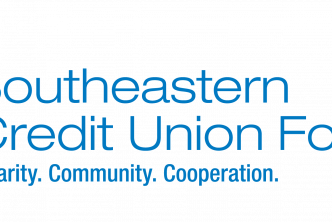Juli Lewis, director of the Southeastern Credit Union Foundation, announces the 2019 Financial Counselor registration (FiCEP) is open, and those who act right away are eligible for discounts.
“We normally don’t open registration until March, however, we have made some very positive changes to the program that we offer through the Southeastern Credit Union Foundation (partnered with CUNA) and want you to be able to plan ahead,” Juli explained. “If your credit union still has funds to spend in this calendar year, this would be a great opportunity to get in early and save money! Pricing has been lowered this year with the cost for one participant starting at only $600 and discounts for multiple participants per credit union. By signing up before the end of 2018, you will save an additional $50 per person!”
Through the Credit Union Certified Financial Counselor program, employees will be able to help members even more. The cost of registration varies (depending on the number of employees signed up), and credit unions with SAS funds may apply them to this cost. This cost includes training materials, as well as webinars, group testing, best practices, and so much more.
The course will include two exams, consisting of 100 questions each, and Juli has had great feedback on the change and on the updated material.
Special training and coaching will be provided to help you develop a detailed vision and plan for financial counseling at your credit union. Individuals who successfully complete the program and exams will earn their Credit Union Certified Financial Counselor (CUCFC) designation. With certified financial counselors on staff, credit unions are better able to:
- Help those experiencing financial difficulties: Utilize the FiCEP certified team members to assist members that are just starting out or seem to be struggling (using overdraft protection regularly, falling behind on loan payments, using a credit card to make payments). Identify these members through daily interactions and then schedule consultation appointments. Appointments can also be set up through the website for those looking for help. List your certified counselors on the website, along with biographical information, and give members the opportunity to request an appointment. If feasible, allow those certified to block off part of their schedule each week for financial counseling appointments.
- Demonstrate the credit union difference: Many banks do not try to be proactive when it comes to helping members. They wait until they are months past due and sometimes too far under water to make contact. You should be sure to communicate to members through social media, newsletters, and the website that you have this service available.
- Attract new members: Advertising or simply adding that you have certified financial counselors to your list of member benefits may attract new members, especially promoting that this is a free service through the credit union. Partner with community agencies such as United Way, Metropolitan Ministries, and Neighborhood housing programs to bring the counselors to their clients on a regular basis or to start a community financial literacy program. You can also work with high schools and colleges to offer money management sessions for students just starting out or just getting their first job. Building the relationship early bonds the teen to the credit union for life. Another possibility is to offer scholarships related to the financial counseling workshops.
- Grow product and service revenue: Possibly add checking programs for members with lower credit scores who may not qualify for traditional checking. A requirement could be that they complete a designated number of counseling sessions or workshops. Some could be considered with a higher risk loan or a loan to start building credit.
- Reduce delinquencies and charge-offs: Obviously, assisting members in getting out of the debt/past-due cycle will help in reducing delinquencies but will also gain trust and loyalty.
Please click here for more detailed information and to register. Space is limited to 50 individuals so be sure to reserve your spot soon. Let Juli know if you have any questions. Locations for the two face-to-face meetings/group testing will be announced after registration is complete. If your credit union is registering a large group, special accommodations might be made. If you cannot make a face-to face meeting/testing, other arrangements can be made.
The Orientation webinar is in May so please register by the end of April to ensure that we can get you set up on time.
Still not sure? We know that FiCEP benefits our employees and is a feather in their cap. Watch CUNA’s video to see how this training ultimately benefits our members.



